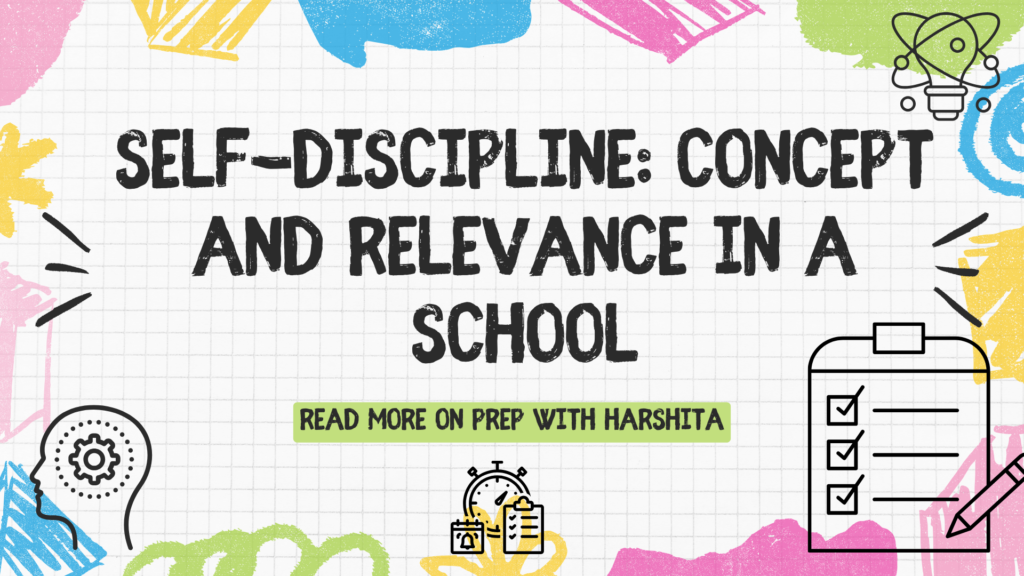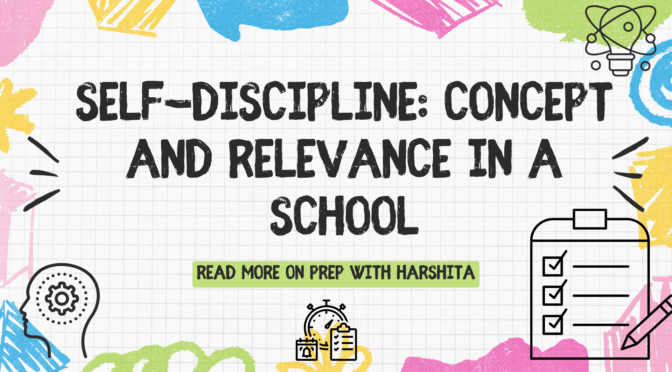Self-Discipline: Concept and Relevance in a School
Relevance in a School Setting:
Academic Success:
Students with strong self-discipline are better equipped to stay focused on their studies, complete assignments on time, and engage in effective study habits.
Classroom Behavior:
Self-disciplined students are more likely to exhibit positive behavior in the classroom, contributing to a positive learning environment.
Attendance and Punctuality:
Self-discipline plays a role in regular attendance and punctuality, essential factors for academic success.
Test Preparation:
Students with self-discipline are more likely to engage in consistent test preparation, leading to better performance in exams.
Goal Setting:
Developing self-discipline helps students set realistic academic and personal goals, fostering a sense of purpose and direction.
Also Read : Role of Parent Teacher Association
Promoting Self-Discipline in Schools:
Character Education Programs:
Integrate character education into the curriculum to instill values and virtues associated with self-discipline.
Social-Emotional Learning (SEL):
Incorporate SEL programs that help students develop emotional intelligence, self-awareness, and interpersonal skills.
Positive Behavior Support:
Implement positive reinforcement strategies to acknowledge and reward self-disciplined behavior.
Teacher Modeling:
Teachers can serve as role models by demonstrating self-discipline and emphasizing its importance in achieving academic success.
Parental Involvement:
Collaboration with parents is crucial for reinforcing self-discipline at home and in the school community.
Also Visit: Prep with Harshita



Nice article.keep up the good work
This is a great blog and i want to visit this every day of the week “
GTU
Thank you for your sharing. I am worried that I lack creative ideas. It is your article that makes me full of hope. Thank you. But, I have a question, can you help me?
Can you be more specific about the content of your article? After reading it, I still have some doubts. Hope you can help me.